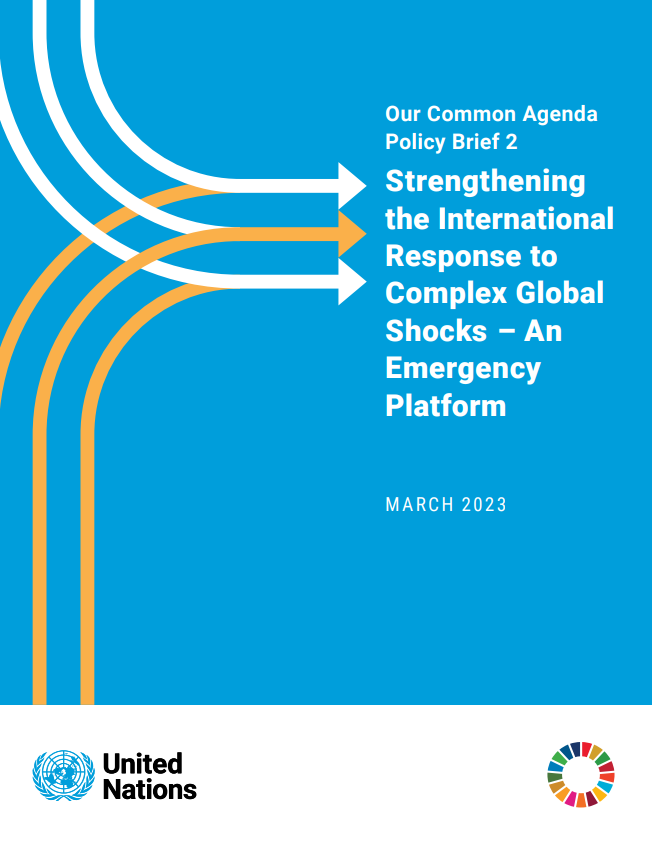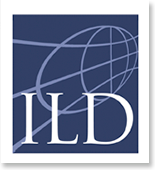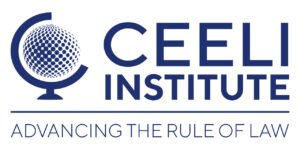The policy brief proposes an Emergency Platform that activates for global shock response. It examines their potential impact on sustainable development, human rights, gender equality, and ways to improve the international response. In “Our Common Agenda,” the Member states positively received the idea of an Emergency Platform assembling leaders from various sectors during crises, and they requested further details on its operation. Strengthening the International Response to Complex Global Shocks – An Emergency Platform
Global shocks, such as the COVID-19 pandemic and the 2022 cost of living crisis, can worsen due to climatic events, pandemics, biological agents, global flow disruptions, cyber disruptions, space events, and unforeseen events. Hence, a timely international response can mitigate impacts on sustainable development. The Emergency Platform aims to ensure such a response, emphasizing the importance of risk reduction and resilience building.
Why is it needed?
Objectives of an Emergency Platform
- High-level political leadership
- Equity and solidarity
- Coherent multilateral response
- Inclusive and networked multilateralism
- Advocacy and strategic communications
- Securing commitments and accountability
Improving risk anticipation, including early warning systems, strategic foresight, anticipatory action, a “Futures Lab,” and a Global Risk Report, is critical. This enhances public awareness, preparedness, and resilience. In this sense, the COVID-19 pandemic and the 2022 cost of living crisis taught how the multilateral system could better respond to future complex global shocks. These lessons include the importance of:
- A prompt, predictable, and structured international response;
- Maximizing the unique convening role of the United Nations;
- Catalyzing political leadership through networks of willing Member States;
- Coordinating across sectors and disciplines throughout the multilateral system;
- Engaging multiple stakeholders and holding them accountable in the global response;
- Strengthening accountability for delivering on commitments and ensuring coherence in the international approach.
KEY PRINCIPLES OF AN EMERGENCY PLATFORM
FLEXIBILITY AND AGILITY: It is a flexible response mechanism that can be activated as needed, adaptable to various risks rather than a standing entity.
SOLIDARITY AND EQUITY: It should foster an international response to global shocks that upholds equity and solidarity, prioritizes the most vulnerable and ensures those affected by a crisis have a voice in the response and receive necessary protection.
STRENGTHENED COORDINATION: It involves multilateral participants cooperating with and reporting to the Secretary-General for a unified response to complex global shocks.
INTERDISCIPLINARY AND MULTISECTORAL: It must integrate all relevant expertise and amalgamate different sectoral approaches and strategies.
INCLUSIVE AND MULTI-STAKEHOLDER: It should include all relevant actors from various sectors worldwide. The Secretary-General identifies these actors and oversees their contributions.
ABILITY TO SECURE COMMITMENTS AND HOLD ACTORS TO ACCOUNT: It ensures participants make precise, direct commitments. For instance, financial or technical resources, advocacy, or policy shifts to support the global response, and they accept accountability for them.
LEVERAGE EXISTING OPERATIONAL AND COORDINATION RESPONSE MECHANISMS: It should leverage existing sectoral mechanisms to deliver collective results focusing on high-level convening and advocacy while avoiding duplication of technical responses.
When and how?
The General Assembly should grant the Secretary-General and the United Nations system authority to initiate and operationalize an Emergency Platform. This platform would automatically activate in the face of a future global shock of significant scale, severity, and reach.
a) Severity of a crisis: This considers primary and secondary impacts, such as the number of people affected, economic implications, and environmental damage.
b) Reach of a crisis: This involves the number of people, countries, or regions affected by the primary or secondary impacts of the problem.
c) Complexity of a crisis: This refers to whether the crisis is a multidimensional, multisectoral and interconnected and demands cooperation.
d) Existing coordination and operational response mechanisms: This involves assessing current coordination and response operations. It’s crucial to ascertain whether a sector-specific mechanism can effectively manage a shock.
Recommendations for Member States:
Lastly, the document invites Member States to consider the proposal for an emergency platform and to include elements for its implementation in the Summit for the Future during their preparatory processes. For example, these elements include:
- deciding that the Secretary-General has the permanent authority to convene and operationalize an emergency platform,
- deciding that the platform is not a permanent body,
- deciding the objectives and principles of the platform,
- requesting that the Secretary-General regularly report to the General Assembly on the platform’s activities and
- emphasizing that the platform respects the sovereignty of States and supports and complements the response of other United Nations bodies.
Strengthening the International Response to Complex Global Shocks – An Emergency Platform




